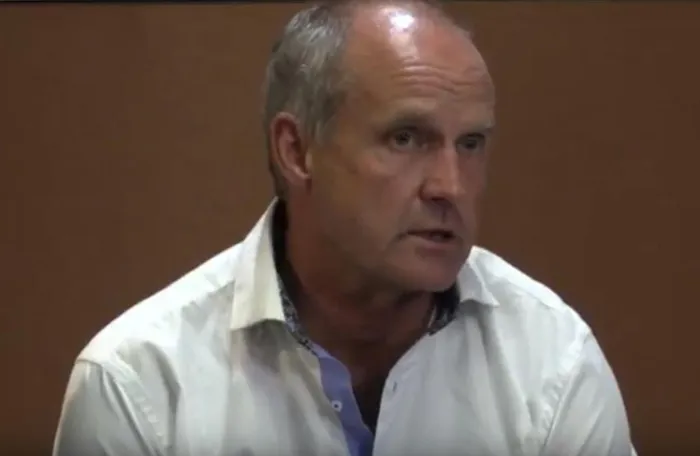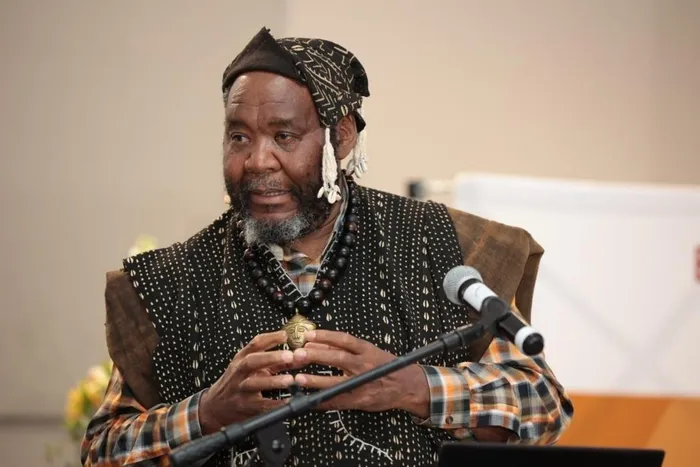Dr Pali Lehohla: Debating the labour force survey- a response to Fourie's critique

Gerrie Fourie.
Image: File.
When Ashraf Gadar said he sensed anger in my voice during an interview on the topical labour force survey, I said certainly there is anger in my voice.
This is because if Fourie’s rendition of the Labour Force is an understanding and representative of what goes on the in Boardrooms of business in South Africa then only god must help us.
Through Statistics South Africa the citizens of this country have engaged in a dialogue about their lives and have made South Africa and South Africans discoverable and knowable to themselves and about themselves.
Anything else equivalent to what Fourie was saying is abracadabra and can only be adjudicated by magicians.
You see StatsSA runs a national statistics system which implies that it has designed a project based on systems design and driven by systems thinking.
In such a system I had to listen to Tito Mboweni when he said, Statistician-General the Producer Price Index (PPI) is fine but the Consumer Price Index (CPI) does not make a lot of sense.
I had to listen to John Stopforth of Investec when he said the housing index is wobbly.
I had to listen to Trevor Manuel when he arrived huffing and puffing from Automn meetings in Washington asking about why the CPI is stubbornly on the up. Certainly, the system did not cohere then.
The reason was that the national treasury had stubbornly refused to depart with a R 6 million for a general household survey that would have provided us weights for housing measurement component in the CPI. We put up a fight, they would not budge.
Since 2003, StatsSA has not made any silly mistake save for a typo on the manufacturing statistics matrix over which I tendered my resignation in 2005, but the resignation was not processed.
The typo in a thousand cells is a discussion for another day, suffice to say yet again there, the 2005 typo emerged from a 2003 dossier alleging corruption and theft of money and the process I intended to implement to avoid such was sabotaged internally. It is a topic for another day.
There was an arduous process of reengineering the CPI which included direct price observation in outlets by data gatherers instead of telephone based surveys which could run the risk of the Portuguese pyjama CPI syndrome.
One is mindful of the fact that citizens inform themselves by freely providing their most precious of themselves to Statistics South Africa in the firm belief that society cares and those to whom society has entrusted with the care will respect their trust which is the result of what they have provided for policy attention.
StatsSA processes the responses dutifully following acclaimed standards.
The United Nations Statistical Commission convenes annually in New York to address methods.
Over five days the bean counters of the world prepare and present methodological programmes on population, economic and social statistics.
They interrogate geospatial data and now the focus is on information technology and the world of data and how statisticians lead in this role.
The World Data Forum which Statistics South Africa had the benefit of hosting as an inaugural programme of the commission in 2017 shows where Statistics South Africa ranks in the world.
Whilst questioning and contesting is not a problem by itself, but failure to inform oneself before contesting can be a source of great anger to the listener, especially when the soliloquy becomes equivalent to somnambulism.
Reading Fourie’s soliloquy was annoying because it showed that he did not bother to read the methodological notes because if he did, he would have answered himself.
But more irritating and annoying were the ANC MPs in the portfolio committee and Minister Tau who amplified Fourie’s soliloquy and resisted to pay attention to the MKP and EFF MPs who actually understood and explained in detail not only the numbers but expatiated on the context of their meaning and implications.
As though it was not enough my brother Siyabonga Radebe has amplified the debate and I thought I should shed light on this before it goes out of hand based on misinformation and speculation.
You see Bungani I have to provide history to the QLFS.
I may appear abrasive but I am actually factual and the concerns and comparative analysis is all answered in a report that prompted StatsSA to adopt a quarterly labour Force survey. In 2004 government was concerned that despite rise in fixed capital formation and growth in the economy, there was no corresponding growth in jobs.
Then we were conducting the Labour Force Survey twice in a year. Given the concern, I roped in two experts who provided a critique on the labour force survey and one of them was from Brazil.
They made a number of observations and recommendations that we adopted.
These included amongst others line of questioning but the most fundamental recommendation was to run a quarterly labour force survey to capture seasonality.
We then roped in two Canadian experts from Statistics Canada who helped us to answer and implement the recommendations and their counterpart group was under the leadership of a formidable Yandi Mpetsheni who ran with the ball over the four years of implementation of methods. A parallel survey of the old method and the new method was conducted throughout and a major one for implementation was in 2007.
Linking factors for the old and new survey were implemented and in 2008 the new quarterly survey was implemented after a four year period of careful work. Bungani's balancing act from interesting corners of the mouth is appreciated.
However, if he read the expert critique and recommendations, as well as the report on implementation of the recommendations which considered especially comparisons with Brazil and other countries, he will discover that he has no case to argue.
There is no legacy to protect on my part Bungani nor language to polish. When a lie is told there is no reason to give it a different word.
It is simply a lie and when an argument does not make sense it is called nonsense in the English language and when nonsense is given wheels and wings to fly it is called rubbish.
Those who wish to opine should do so from research rather than from a hailer.
Two issues stood out in the expert report, the question of agricultural activity linked to land ownership and high levels of concentration answers Bungani's balancing and supposition act.
That is why South Africa is unique and an outlier.
The land question is not just a fleeting imagination by the EFF and other parties in Parliament.
It is at the core of differentiated employment status with all other countries referred to. South Africa Land Act systematized impoverishment of skill, practice, participation and empowerment.
So, it is not surprising that its unemployment is an outlier, it is an outlier in land ownership too. All the other speculations have no room to sleep in this debate.
Closed case.
If there is anything important that Fourie’s provocation elicited in this debate is the land question and parliament should engage fully if it wants unemployment of South Africa to be in line with that of other comparable countries.
Dr Pali Lehohla is a Professor of Practice at the University of Johannesburg, a Research Associate at Oxford University, a board member of Institute for Economic Justice at Wits and a distinguished Alumni of the University of Ghana. He is the former Statistician-General of South Africa.

Dr Pali Lehohla is a Professor of Practice at the University of Johannesburg, among other hats.
Image: Supplied
BUSINESS REPORT
Visit: www.businessreport.co.za